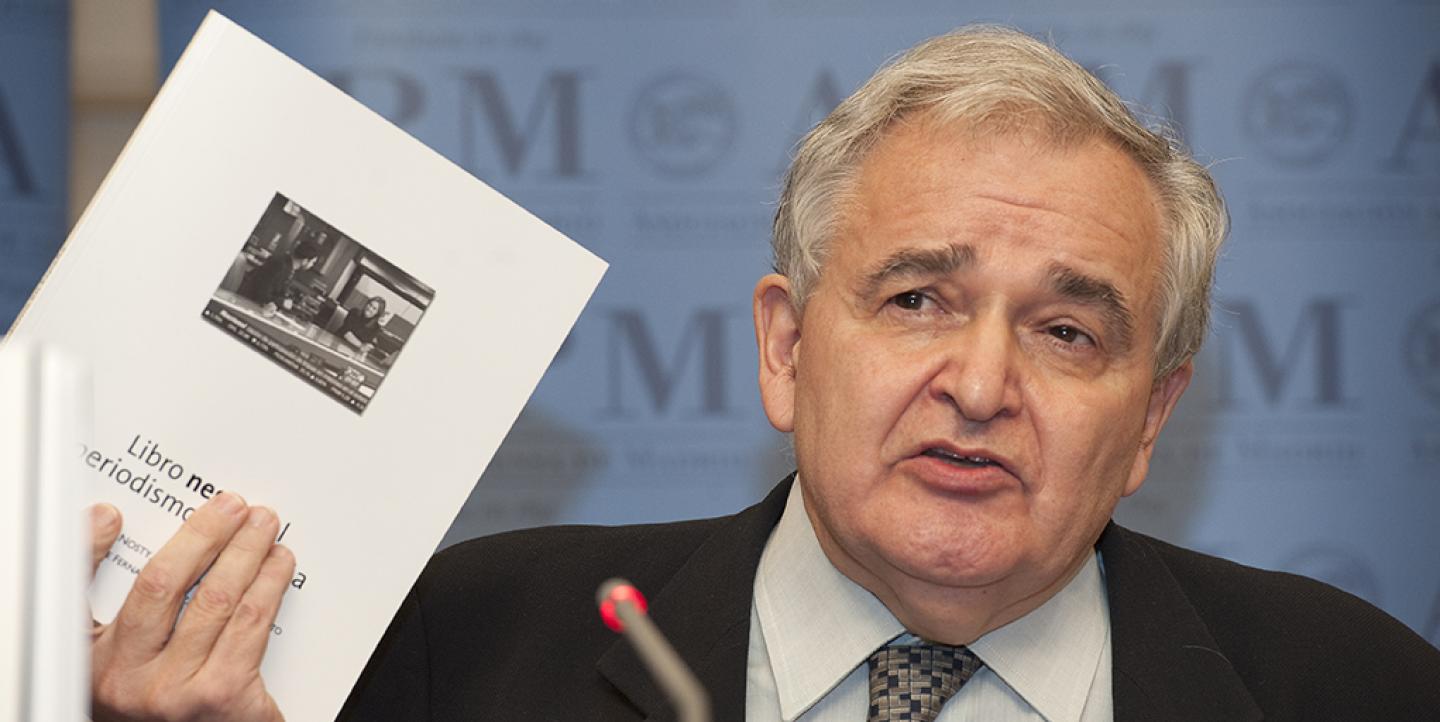Pressure from the publishing industry has weakened the watchdog role of journalists, turning them into lapdogs at the service of corporations and politicians and unable to serve their readers.
That’s one of the conclusions of Bernardo Diaz Nosty, journalism professor at the University of Malaga.
Diaz Nosty, also a journalist, is the author of “Libro Negro del Periodismo en España” (the “Black Book of Spanish Journalism,”) an in-depth analysis of the current media situation in that country, now also common to other parts of the world.
The book, co-published by Madrid’s press association and the UNESCO Chair of Communications ) at the University of Malaga, also addresses the detrimental relationship between political power and media organizations.
Its publication comes at a time when many European countries are grappling with similar issues, from the proposal to regulate journalists in the United Kingdom after the phone-tapping scandal to a similar "black book" about government-run media in Italy.
Here are excerpts from the interview IJNet conducted with Diaz Nosty.
- IJNet: Why publish a “black book” of Spanish journalism?
- Bernardo Diaz Nosty: The concept of “black book” refers to denouncing a situation, more than just presenting the reality of a story ... And that reality is more global than local. It is a crisis of the values of democracy, a degradation of journalism.
- IJNet: What is the current state of journalism in Spain?
- BDN: In general, Spanish journalism has a long tradition and its major newspapers are very good, but excessive pressure from the industry has weakened (the media's) role as the watchdogs of democracy, they became an extension of those powers, instead of [serving] readers and viewers…
- IJNet: What problems does the journalism profession face today?
- BDN: …The replacement of well-paid, experienced professionals by young people fresh out of college, who earn no more than US$1,500 or US$2,000 a month. And also, hiring many interns, fellows…
- IJNet: How does this affect the relationship between media and the government?
- BDN: Every government ... forms alliances with the media. Our system has many public stations associated with the government because of the information they publish and those stations have no credibility. The close relationship of the media industry, political power, which moves many millions of euros a year, has built a vast system dependent on the government at the national, regional and municipal level.
- IJNet: How does this fit into the debate that exists worldwide on the future of journalism and new media?
- BDN: We're undergoing an irreversible transition to a new media landscape. The technological skills of these new audiences, the “digital natives,” are crucial. In addition, we're experiencing a paradigm shift, with a new generation that seeks to build a global society based on transparency, interaction and rebuilding society…
- IJNet: You write about an “academic bubble” in the book, what do you mean?
- BDN: I refer to the 75,000 journalism graduates in Spain, to which you need to add thousands graduating with degrees in communication, advertising, etc.
The market and the industry cannot absorb them. But as long as there is such a large supply of graduates, companies will take advantage of the situation and pay miserable wages. This deteriorates journalist's social prestige and independence.
- IJNet: How can Spain’s journalism overcome this situation?
- BDN: Just as it happened in France, the United Kingdom or the United States: regaining credibility, getting close to society, gaining independence, respecting an increasingly demanding public. Going back to journalism.

